
Malaysia, Thailand, Cambodia Celebrate 19% Tariffs – The Art Of Sucking Up Trump & Surrendering Concessions
August 5th, 2025 by financetwitter
There’s a joke that you don’t need to outrun the bear, you just need to be faster than your friend. In the case of Malaysia, Thailand and Cambodia, they tried to be faster than each other, only for Donald Trump – the bear – rewards all of them with the same19% tariff rate. And they instantly celebrated the White House’s decision as if they had just won their first gold medal in the Olympic Games.
The three Southeast Asian states hailed the reduction in tariff rates imposed by the United States as a victory after prolonged talks. Coincidentally, Thailand and Cambodia were involved in a recent armed conflict in the region, while Malaysia helped broker a ceasefire. Interestingly, the 19% rate is the same as previously announced rates for Asian neighbours Indonesia and the Philippines.
While there were talks that Malaysia, Thailand and Cambodia received their reward due to the ceasefire deal, one cannot help but wonder why Indonesia and the Philippines also got the same tariff rate. Sure, Trump threatened not to make a trade deal with Thailand and Cambodia until the fighting stopped. But what had Indonesia and the Philippines done to deserve the same tariff rate.
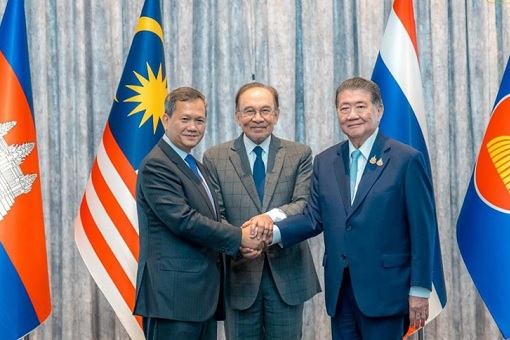
The simplest explanation is that the Trump administration had all along planned to slash the initial tariff rate from whatever crazy numbers plugged from the sky to a flat 19% for every nation in the region – provided they behave like a good boy, demonstrate obedience, do not provoke the White House and offer to buy more American products or open their markets to the U.S.
Naughty boys Laos and Myanmar were hit hard with 40% tariffs – the second-highest rate in the world, behind Syria (41%) – for obvious reasons. Myanmar, still under U.S. sanctions following its 2021 coup, did not bother to negotiate as its bilateral trade with the U.S. is relatively small – two-way trade was merely US$588.3 million. However, junta chief Min Aung Hlaing did praise Trump, resulting in the lifting of sanctions against several generals.
Laos, meanwhile, has drawn U.S.’ displeasure for deepening ties with China. It was not as aggressive as its other neighbours in negotiation because U.S. exports to Laos totalled only US$40.4 million in 2024, while imports reached US$803.3 million. Still, Laos, which was initially slapped with a 48% rate, saw a modest reduction to 40% after limited progress in trade talks with U.S. officials.
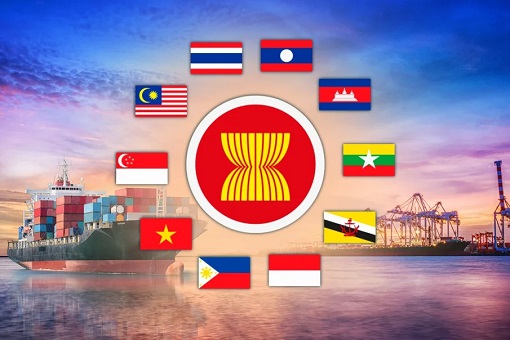
Malaysia isn’t the biggest winner, even though Prime Minister Anwar Ibrahim deserves some praise for brokering the Thailand-Cambodia ceasefire, stop the idiotic praising of Hamas terrorists and softening anti-Israel rhetoric. Kuala Lumpur was slapped with 24%, before increased to 25% (the only country in the region that suffered a hike) till the final figure 19% tariff rate.
Thailand and Cambodia are bigger winners than Malaysia as they were facing a 36% tariff before being cut to 19%. Even Indonesia (32% to 19%) and Vietnam (46% to 20%) received a bigger discount than Malaysia. Sucking up to Donald Trump, Cambodia said it will nominate the President of the United States for the Nobel Peace Prize (after Israel and Pakistan recommended him for the award).
Initially, PM Anwar rushed to claim credit by prematurely announcing a ceasefire between Thailand and Cambodia. But the fighting continued till Trump, who also wants to be the peacemaker in his quest for the Nobel Peace Prize, spoke to the leaders of Cambodia and Thailand and threatened that Washington would not get back to the “trading table” with them until the fighting stops.
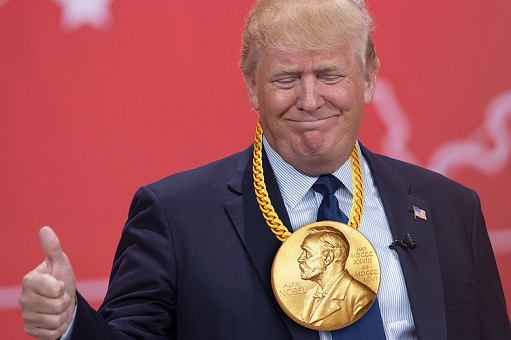
By engaging with Thailand, Cambodia and Malaysia, the U.S. not only secured trade concessions but also reinforced its presence in key parts of the region where influence is being contested with Beijing. Trump hopes the 19% tariff reward would move these three countries deemed to be China-friendly further away from Beijing’s orbit of influence.
But the most important factors were the willingness by Malaysia, Cambodia and Thailand to open up market access to the U.S. Thailand had offered greater market access for U.S. products by pledging to scrap tariffs on 90% of its goods. It also promised to take non-tariff measures to cut its US$46 billion trade surplus by 70% within three years, in addition to tackling the rerouting of goods produced in other countries.
Interestingly, Cambodia hardly buys anything from America. In 2024, U.S. goods exports to Cambodia were merely US$321.6 million, while U.S. imports from Cambodia totalled US$12.7 billion – leading to a trade deficit of US$12.3 billion. To impress Trump, Cambodia said it would drop all tariffs on imports from the U.S. and order up to 20 Boeing 737s for its national airline.
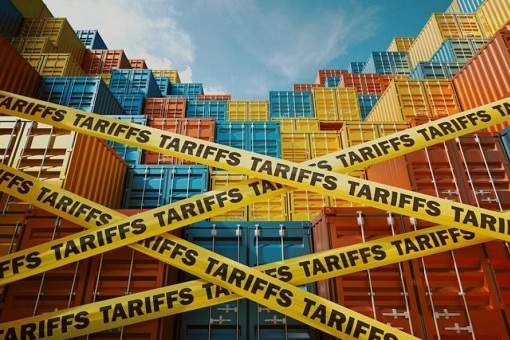
Trump had originally threatened an eye-popping 49 % tariff on Cambodia as part of his “Liberation Day” measures aimed at re-balancing world trade in America’s favour, but cut it to 36% last month, before dropped it to 19%. Cambodia is a major manufacturer of low-cost clothing for Western brands, with garment products accounting for most of its US$10 billion in exports to the United States last year.
Like Cambodia, Malaysia too has promised to buy Boeing in an attempt to appease and impress Trump. Minister of Investment, Trade and Industry Tengku Zafrul Abdul Aziz said that Malaysia is committed to purchase 30 Boeing aircraft valued at US$9.5 billion in the first phase and an additional 30 Boeing aircraft valued at US$9.5 billion for the second phase – a total of 60 Boeing at US$19 billion.
Even though Zafrul tries to spin and twist that the Boeing purchases were part of Malaysia Aviation Group’s (MAG) strategic business decision, and not a waste of taxpayers’ money, it’s not rocket science that the decision was more political than business – even though the first phase of purchase was done in March (after Donald Trump’s inauguration).
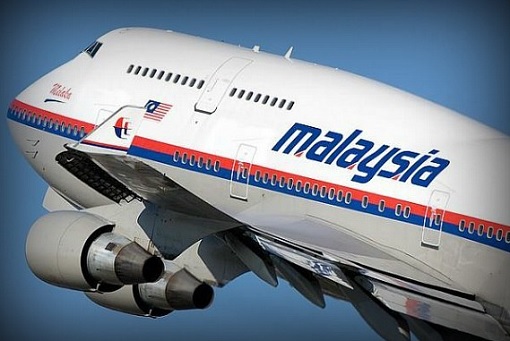
The Anwar government should explain why the parent company of national carrier Malaysia Airlines Bhd, despite posting a net profit of RM54 million in 2024 – down 93% from the RM766.19 million in 2023 – and a drastic 18% capacity cut across its network, now wants to buy a whopping 60 Boeing planes. Even if there was a need, which it doesn’t, shouldn’t MAG consider the cheaper Airbus?
Obviously, Anwar was trying to bribe the Trump administration with mega-deals like Boeing aircraft due to U.S. pressure. It was similar to how former Prime Minister Najib Razak announced the purchase of 25 Boeing planes in 2017 during his meeting with first-term President Donald Trump to boost the U.S. economy (while Malaysians struggled financially back home) and to “Make America Great Again (MAGA)”.
It was already bad that Anwar Madani copied a page from Najib’s playbook. It becomes worse when taxpayers’ money is misused to buy planes that the national carrier doesn’t need. Malaysia Aviation Group (MAG) is owned by sovereign wealth fund Khazanah Nasional, the sole shareholder of Malaysia Airlines Berhad, which means public funds are being used to appease the U.S.

The good news is Malaysia can always promise to buy Boeing now, but cancel it later after Trump leaves the White House before the aircraft delivery, just like how Najib had scammed Trump during his first term. But that was not the only concession made. Zafrul also acknowledged that Malaysia had agreed to eliminate tariffs on a number of US agricultural products and facilitate the importation of halal meat from the US.
Sure, the government said it will only allow the importation of meat and poultry products from the U.S. that have halal certification issued by U.S. bodies recognised by the Department of Islamic Development Malaysia (Jakim) and compliant with Shariah standards. But the “facilitation” being offered means “special recognition” or “easier approval” of U.S. halal certificates.
After all, why does Jakim need to facilitate the verification of U.S. halal certificates now if it indeed had already done so previously? Was Zafrul trying to say Jakim did not do its job till Trump threatened with punishing tariffs on Malaysia? Hilariously, the U.S. did not complain about Indonesia’s halal standards that require all imported products to have the Indonesian halal logo.

Either Malaysia’s Jakim was discriminating against the U.S. halal certificates compared to Indonesia, or Jakim now has to close one-eye over the American halal certificates. Either way, Malaysia is being forced to open up its market for American halal products. And Zafrul has to carefully play down – even lie – on this issue due to the sensitivity of Malay Muslim voters.
Other concessions included the lifting of the ban on imports of cereal crops, sorghum, and rice, not to mention tariff removal on over 98% of US products. Essentially, the concessions include zero-rated tariffs on an additional 191 agricultural products and 1,347 industrial products exported by the U.S. to Malaysia, meaning Malaysia agreed to exempt sales tax against U.S. agricultural products.
Due to Trump’s pressure that saw the tariff rate momentarily increased to 25% from 24%, Malaysia agreed not to impose any export restrictions on the supply of rare earth minerals. This has certainly delighted the Trump administration, humiliated and had to surrender many concessions to Beijing after China sanctioned exports of rare earth elements to the U.S.

In truth, Malaysia has relaxed or given up tonnes of controls and conditions in exchange for not agreeing to a full liberalization of foreign equity requirements in sectors deemed political sensitive. This is how Anwar government managed to convince the Trump administration not to demand changes to Bumiputera equity requirements.
No comments:
Post a Comment